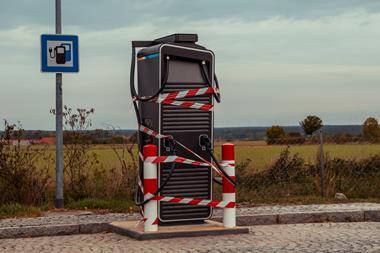The Freight Transport Association (FTA) has called for the industry to be closely involved with discussions about road infrastructure funding, following the announcement by the Highways Agency of an upgrade to the A14 between Cambridge and Huntingdon.
The proposed £1.5bn scheme will see a new 12-mile Huntingdon bypass as part of a package of improvements on the 22-mile route. This will be mostly funded by Central Government, with a substantial contribution from Local Authorities and Local Enterprise Partnerships. However, FTA’s concern is that the shortfall will have to be picked up by those using the route, including the transport and logistics industry.
Malcolm Bingham, FTA’s Head of Road Network Management Policy, said: “FTA welcomes at long last a commitment to fund the upgrading of this essential strategic piece of infrastructure. But tolling is always bad news for the logistics industry as it is always taken as a threat of extra cost.
"Charges deter the use of road space, and that might well happen with the motorist who uses the network on a non-essential basis. What is plain is that charges or tolls will not affect the need to take goods and services to the customer. Those journeys will have to be made, the toll will have to be paid for and transport companies will aim to pass on those extra costs to the customer."
Bingham said FTA members had a realistic view on the lack of forward funding for road infrastructure and could see that there will be a tendency to move to tolling as an option to attract the necessary finance.
“FTA members realise that without tolling, it will be difficult to raise the necessary funding for new infrastructure," he said. "But our members want to ensure that any tolling that is put in place is reasonable and fit with a set of parameters which the Association has called the tolling charter.”
The FTA ‘Commercial Vehicle Operators’ Road Toll Charter’ is set out as follows:
1. Visibility of charging elements: There needs to be transparency about the basis of the charge, how is it calculated and what costs it seeks to recover. There must be no discriminatory pricing against commercial vehicles.
2. Compensatory reduction in fuel duty: Road users already pay over £40 billion in taxes and commercial vehicle operators about £25 billion in fuel duty alone. Any new tolls or charges must be offset by an equivalent reduction in fuel duty and other taxes - there can be no Double Taxation!
3. Availability of alternative non-tolled route: The Government cannot grant a monopoly to a road operator on routes where no suitable alternative exists to the tolled route (for example, the M6 provides an alternative to the M6 Toll Road).
4. Minimum service levels: Any contract to manage and charge for a new road must be accompanied by minimum standards of service, including route availability in severe weather, breakdown recovery and assistance times, minimum transit times and parking and rest facilities. Freight companies will expect value for money and compensation when service falls short of promised standards.
5. Lower rates for less polluting and less road-wearing vehicles Vehicles meeting the latest low emission standards should be offered discounts to incentivise their use and recognise the contribution they make to improved environmental standards. As with vehicle excise duty, charges should be lower for vehicles with fewer axles or lower weights that cause less impact to the road surface.
6. Harmonisation of charging systems: There should be a common national basis for the charge and any payment technology such as a tag to avoid the current problem of having a cab full of tags for different bridges and tunnels. Ideally FTA would like to see a move away from toll plazas which cause congestion, towards Automatic Number Plate Recognition (ANPR) which is to be implemented at the Dartford Crossing in the Autumn of 2014.
7. Toll revenue to be invested in the roads to which they apply Revenue from tolls and charges should be invested in the route to which they apply to guarantee a high standard of road condition and level of service.

































No comments yet